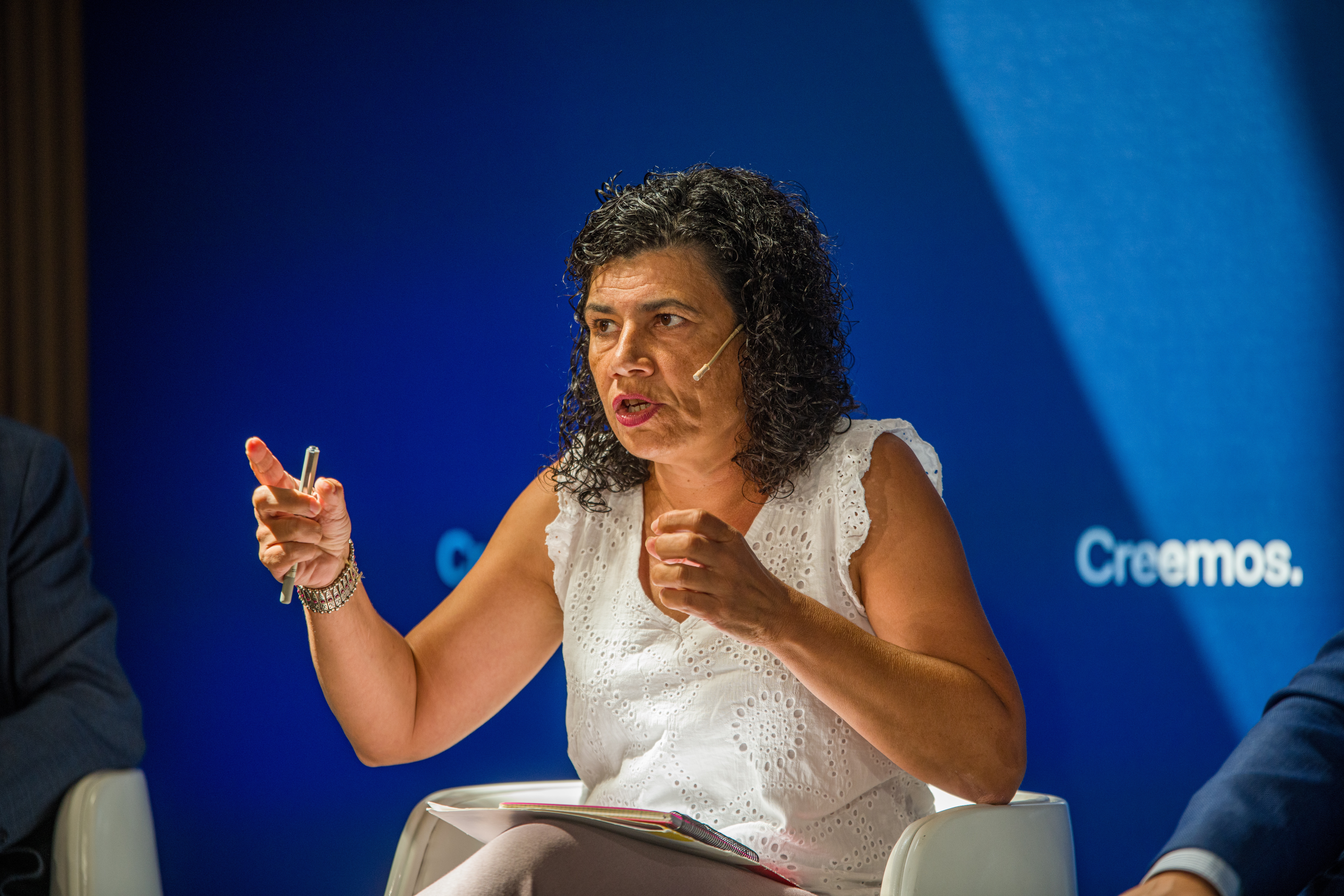The Spanish nationalist viewpoint, in unlimited quantity. The mission by a group of MEPs to examine Catalonia's linguistic immersion system has arrived this Monday, on a tour that is tailor-made to agitate for the rejection of the Catalan educational model. The intention is clear when you consider that behind the operation are the People's Party (PP), Vox and Ciudadanos (Cs), the parties that approved the mission in the European Parliament's Petitions Committee as requested by the anti-immersion pressure group Asamblea por una Escuela Bilingüe ("Association for a Bilingual School", AEB). The objective becomes even simpler taking into account that many of the individuals and organizations that will discuss the issues with the MEPs - all of whom are from the right, far-right and liberal political groups - have Spanish nationalist backgrounds and will make clear their opposition to Catalonia's 30-year-old policy of educating its children almost exclusively in the minoritized Catalan language in order for them to emerge at the end of their schooling proficient in both Catalan and Spanish.
The protagonist of the visit is, without a doubt, Ana Losada, president of the AEB. She has been an active participant in the organization opposing Catalan language immersion for a decade, ever since she campaigned for her own daughter to be able study in Spanish at her school in L'Hospitalet de Llobregat. She ended up achieving this, with the Court ruling in her favour, imposing a 25% Spanish language quota on the classroom time of the student and her classmates. But that has not been a one-off success, because she herself has captained the AEB strategy to advise more than a hundred families who have joined the same crusade, thus becoming the architect of a series of victories in judicial proceedings against the Catalan model.
There will also be a meeting with Carlos Silva, president of Docentes Libres ("Free Teachers"), a platform of teachers with Spanish nationalist viewpoints who demand "the neutrality of educational centres". Created last year, the organization explains in its presentation statement that it aims to "give a voice to many teachers who, for different employment-related reasons, silently endure nationalist pressure in their respective schools". To show that they are opposed to the Catalan immersion policy, one only needs highlight that one of their objectives is also to denounce "the discrimination against Spanish-speaking students by the Catalan government in its desire for Spanish to remain marginal in the education system".
An affected parent, an ex-Cs politician and an Argentinian arrival
There will also be meetings with individual protagonists. One of these is Javier Pulido, who rose to prominence when he became the parent who succeeded in convincing the Catalan High Court (TSJC) to impose a 25% Spanish quota in one class at a primary school in Canet de Mar, a case that has made headlines over the last two years. He was, in fact, a member of the Ciudadanos party, and stood for the local municipal council for Cs in 2019. He also took several people to court for posting tweets commenting on the Canet case.
In second place, there is Jordi López, appointed new vice-president of the AEB in October, and one of the people who presented the demand to the European Parliament. In his presentation to the position, he said he would work to "guarantee the rights of students to receive education in the official languages and at least in one foreign language". He is also a former Ciudadano representative, in his case in El Prat de Llobregat, and managed to impose 25% Spanish through the courts in the classes of two of his children.
Finally, two more names. On the one hand, Dafne Ungerer, an Argentinian who arrived in Catalonia in 2012 to make her life, but, once here, realized that the education was not in Spanish. In an interview with El Confidencial, she explained that she was "disillusioned" after learning that her children studied at school in Catalan. “My little ones were having to learn a foreign language!” she told the newspaper. Because of this, she also took the case to court and obtained a 25% Spanish quota in her school. And finally there is Agustín Fernández, a resident of Lleida who also obtained the Court's support to force classes to be imparted in the Spanish language at his son's school.
And those in favour of immersion?
On the other side, meetings have been scheduled with only two organizations defending the Catalan immersion model. They are the Fundació Bofill (Bofill Foundation) - a think tank promoting research, debates and initiatives in the sphere of education - and USTEC - the main education trade union, with a tradition of promoting the language. Although there are other pro-immersion organizations that have asked to meet the MEPs, these are the only ones that have been chosen and have received the formal invitations, as informed sources explain to ElNacional.cat. The meetings with these two groups are to be held this Monday.
As the head of projects for the Fundació Bofill, Elena Sintes, explained to this newspaper, the entity plans to present the results of the research and evidence that "demonstrate that the the Catalan school model achieves the objective of educating all students in Catalan and Spanish, thus fulfilling the primary objective of immersion. The Foundation describes it as a "unique and inclusive model that avoids the separation of students into segregated communities according to their language of origin and promotes social cohesion and equity." In addition, during the meeting they will point out "the challenges faced by the Catalan education system, which in no case have anything to do with the students' familiar language or with the vehicular status of Catalan."

